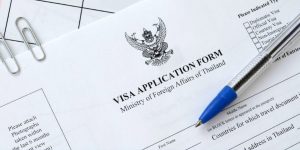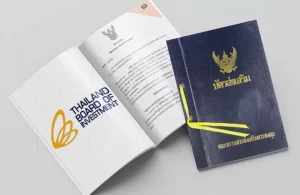Thailand’s Foreign Business Act (FBA), enacted in 1999 and amended in 2008, serves as the cornerstone of the country’s regulatory framework governing foreign investment and business operations. The FBA is designed to protect Thai industries and national interests while balancing the need to attract foreign capital and expertise. This article provides a comprehensive examination of the FBA, exploring its structure, restrictions, exemptions, and practical implications for foreign investors.
Overview of the Foreign Business Act
The FBA regulates the participation of foreign entities in the Thai economy by categorizing business activities into three distinct lists, each with varying degrees of restriction. A foreign entity is defined as a business with more than 50% foreign ownership or a majority of foreign shareholders. The Act applies to a wide range of business structures, including limited companies, partnerships, and branch offices.
The Three Lists of Restricted Business Activities
The FBA categorizes business activities into three lists, each with specific restrictions:
List One: Businesses Prohibited to Foreigners
List One comprises activities deemed critical to national security, culture, or environmental preservation. Foreigners are entirely prohibited from engaging in these businesses, which include:
- Newspaper publishing, radio, and television broadcasting.
- Rice farming, agriculture, and forestry.
- Land trading and real estate development (with some exceptions).
- Thai traditional arts and crafts.
These activities are reserved exclusively for Thai nationals, reflecting the government’s commitment to safeguarding sensitive sectors.
List Two: Businesses Subject to Approval
List Two includes activities that are considered vital to national interests but may be permitted for foreigners with prior approval from the Minister of Commerce and the Cabinet. Examples include:
- Production and sale of firearms, ammunition, and explosives.
- Domestic transportation by land, water, and air.
- Antiquities trading and art auctioning.
- Mining and mineral processing.
Approval for List Two businesses is granted on a case-by-case basis, often requiring justification of the economic or social benefits to Thailand.
List Three: Businesses Restricted Due to Thai Competitiveness
List Three covers activities where Thai nationals are deemed not yet ready to compete with foreigners. Foreign participation in these sectors requires a Foreign Business License (FBL) from the Department of Business Development (DBD). Examples include:
- Accounting, legal, and architectural services.
- Retail and wholesale trading (with some exceptions).
- Hotel and restaurant operations (excluding small-scale businesses).
- Construction and engineering services.
The FBL application process is rigorous, requiring detailed documentation, financial statements, and evidence of the business’s potential contribution to the Thai economy.
Exemptions and Special Cases
While the FBA imposes significant restrictions, several exemptions and special arrangements allow foreign investors to operate in Thailand under specific conditions:
Board of Investment (BOI) Promotion
Businesses promoted by the Board of Investment (BOI) are exempt from certain FBA restrictions. The BOI offers incentives such as tax holidays, import duty exemptions, and permission for majority foreign ownership in targeted industries, including technology, renewable energy, and advanced manufacturing.
Treaty of Amity
The Treaty of Amity and Economic Relations between Thailand and the United States grants American nationals and companies near-national treatment, allowing them to engage in most business activities without the need for an FBL. However, certain sectors, such as communications and land ownership, remain restricted.
International Trade Agreements
Thailand’s participation in international trade agreements, such as the ASEAN Economic Community (AEC) and bilateral free trade agreements, provides additional opportunities for foreign investors. These agreements often include provisions for liberalizing specific sectors and reducing barriers to foreign participation.
Practical Challenges for Foreign Investors
Navigating the FBA can be complex, particularly for first-time investors. Key challenges include:
Foreign Ownership Restrictions
The 49% foreign ownership limit in many sectors often necessitates partnerships with Thai nationals or entities. Structuring these partnerships requires careful legal planning to ensure compliance while protecting foreign investors’ interests.
Licensing and Approval Processes
Obtaining an FBL or ministerial approval can be time-consuming and bureaucratic. Applicants must demonstrate the economic benefits of their business, provide detailed operational plans, and meet stringent financial requirements.
Compliance and Reporting
Foreign businesses operating under an FBL must adhere to ongoing compliance requirements, including annual reporting, financial audits, and restrictions on changes to business activities or ownership structures.
Recent Developments and Trends
The Thai government has shown a willingness to adapt the FBA to changing economic conditions and investor demands. Recent developments include:
Easing of Restrictions in Key Sectors
In response to economic pressures and competition from neighboring countries, Thailand has relaxed FBA restrictions in certain sectors, such as e-commerce, digital services, and renewable energy. These changes aim to attract foreign investment and stimulate innovation.
Focus on Technology and Innovation
The government has prioritized technology-driven industries, offering BOI promotions and FBA exemptions for businesses in artificial intelligence, robotics, and biotechnology. This aligns with Thailand’s broader economic strategy, known as Thailand 4.0, which emphasizes digital transformation and sustainable growth.
Increased Scrutiny of Nominee Structures
Thai authorities have intensified efforts to crack down on illegal nominee arrangements, where Thai nationals act as proxies for foreign investors to circumvent ownership restrictions. This has led to stricter enforcement and penalties, underscoring the importance of legal compliance.
Strategic Considerations for Foreign Investors
To successfully navigate the FBA, foreign investors should consider the following strategies:
- Conduct Thorough Market Research: Understanding the regulatory landscape and identifying permissible business activities is crucial.
- Seek Legal and Professional Advice: Engaging experienced legal counsel and consultants can help ensure compliance and streamline the licensing process.
- Explore BOI Promotion and Treaty Benefits: Leveraging BOI incentives or Treaty of Amity provisions can provide significant advantages.
- Structure Partnerships Carefully: Establishing clear and legally sound partnerships with Thai entities can mitigate risks and enhance operational flexibility.
Conclusion
The Foreign Business Act is a pivotal piece of legislation that shapes Thailand’s approach to foreign investment. While it imposes certain restrictions to protect national interests, it also provides avenues for foreign participation through exemptions, promotions, and international agreements. For foreign investors, understanding the nuances of the FBA is essential to navigating the Thai market successfully. By aligning their strategies with regulatory requirements and leveraging available opportunities, foreign businesses can thrive in Thailand’s dynamic and evolving economy.














